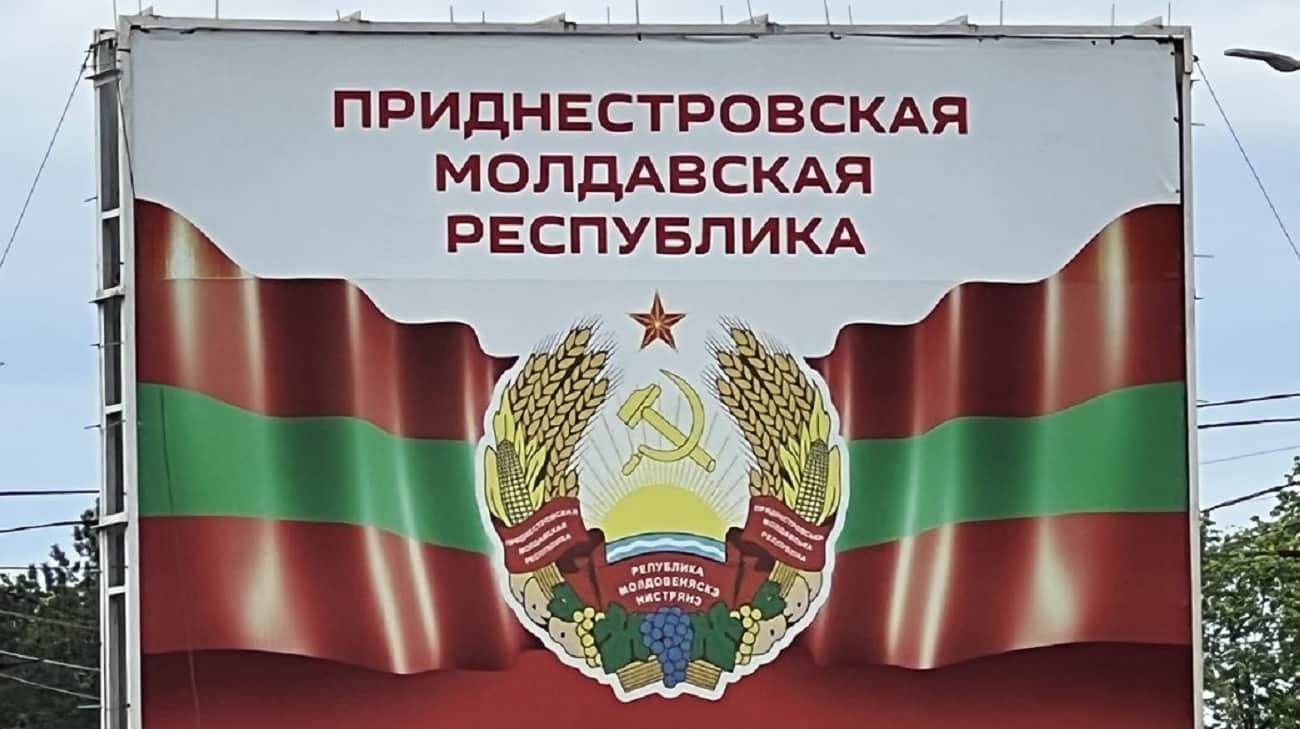ISW forecasts Kremlin's responses to calls from unrecognised Transnistria

The Institute for the Study of War (ISW) has considered several likely scenarios for Russian government actions in response to calls from "lawmakers" in unrecognised Transnistria for help, all of which are in some way linked to destabilising the situation in Moldova. Source: ISW Details: Unrecognised Transnistria held a congress of so-called "lawmakers" on 28 February and adopted a series of decisions that are likely aiming to provide the Kremlin with justification for a wide range of possible escalation actions against Moldova that the Kremlin could take, both immediately and in the long term.
Advertisement:ISW noted that the Kremlin used the idea of protecting its "compatriots abroad" to justify the fact that Russian troops have occupied Transnistria since 1992 and Transnistrian officials likely made appeals to Transnistria's residents holding Russian citizenship to create an additional narrative for escalating Russian activity in Transnistria and Moldova.
ISW pointed out that Kremlin officials and mouthpieces continue to create information conditions for using Transnistria and the pro-Russian Moldovan autonomous region Gagauzia to destabilise Moldova. However, they have not yet indicated how or for what specific purpose they intend to use such information conditions. So far, the Kremlin has not given any signals of an immediate path to escalation following the congress of Transnistrian "deputies." However, Russian President Vladimir Putin may respond to Transnistria's request for help during his address to Russia's Federal Assembly on 29 February.
The Russian Foreign Ministry stated on 28 February in response to the appeal of the Transnistrian congress of "lawmakers" that protecting the interests of Transnistria's residents and Russian "compatriots" is one of its priorities and also promised to "carefully consider" Transnistria's request. The most likely course of action (MLCOA) entails the Kremlin using the congress as a platform to intensify hybrid operations aimed at destabilising and further polarising Moldova prior to negotiations on Moldova's accession to the European Union and the upcoming presidential elections in Moldova in June and November 2024, respectively. The most dangerous course of action (MDCOA) involves the Kremlin potentially deciding on Transnistria's formal annexation in the future to justify military intervention against Moldova in the long term.
ISW suggests the following potential actions by the Russian authorities:
- The Kremlin may decide not to take action immediately after the congress on 28 February. However, Putin may choose to address this request later.
- The Kremlin may increase diplomatic pressure on Moldova to compel it to repeal the recently adopted Customs Code, which came into force on 1 January 2024. The changes Moldova made to the Customs Code are crucial for aligning the country with EU standards on its path toward EU membership.
- The Kremlin may also try to provide Transnistrian forces with additional military assistance in the future.
However, it is currently unclear how it would hope to deliver military equipment or personnel to Transnistria.
ISW emphasised the unclear situation regarding Russian troop movements, as they would have to be transported through Ukrainian or Romanian (NATO) airspace. Alternatively, the analysts suggested that Russia could attempt to conduct a large-scale ground operation through Odesa Oblast. However, Russian forces are unlikely to do so because it would distract personnel from their current offensive actions in eastern Ukraine and would likely fail in any case.
To quote the ISW's Key Takeaways on 28 February:
- Pro-Russian Moldovan breakaway region Transnistria held the Seventh Congress of Transnistrian Deputies on 28 February and adopted a series of decisions that likely aim to provide the Kremlin with justifications for a wide range of possible escalatory actions against Moldova -- actions the Kremlin can pursue both immediately and over the long-term.
- The Kremlin has yet to signal an immediate route for escalation following the Congress of Transnistrian Deputies, although Russian President Vladimir Putin may respond to the Transnistrian requests during his speech to the Russian Federal Assembly on 29 February.
- Ukrainian forces reportedly conducted another strike on a Russian personnel concentration in occupied Donetsk Oblast, once again sparking ire amongst Russian milbloggers and re-surfacing concerns about Ukraine's use of HIMARS systems.
- Russia continues cracking down on actors it deems "foreign agents" to consolidate control over the Russian information space ahead of the March 2024 presidential election.
- A Financial Times (FT) investigation published on 27 February, reportedly based on leaked classified Russian military documents from 2008-2014, outlines Russia's purported criteria for the use of tactical nuclear weapons.
- Turkiye and China appear to be pursuing their own negotiation platforms for a settlement in Ukraine, which the Kremlin will likely exploit to further its long-standing narratives regarding negotiations and the war.
- Russian forces made confirmed advances near Svatove, Avdiivka, and Donetsk City.
- Russian Defence Minister Sergei Shoigu inspected the Tula State University's Military Training Centre and several defence industrial base (DIB) enterprises in Tula Oblast on 28 February.
- Russian occupation authorities are using early voting for the Russian presidential election to cloak Russia's illegal occupation of Ukraine in a veneer of fabricated legitimacy.
Support UP or become our patron!